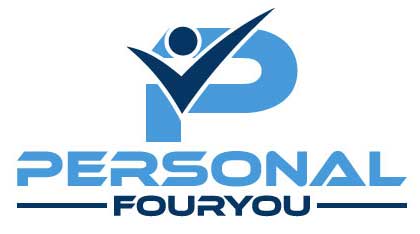
Mental Health Assessment Questionnaires For Research
Eine Bewertung hinzufügen FolgeÜbersicht
-
Gründungsdatum März 8, 1989
-
Sektoren Hightech
-
Gepostete Jobs 0
-
Gesehen 50
Beschreibung des Unternehmens
Why Mental Health Assessment Protocol Isn’t A Topic That People Are Interested In Mental Health Assessment Protocol
Mental Health Assessment Protocol: A Comprehensive Guide
Mental health assessments are vital elements in the diagnosis and management of mental health disorders. They help healthcare professionals evaluate a person’s psychological well-being and formulate appropriate treatment strategies. This short article will dive deep into the mental health assessment protocol, the processes included, approaches employed, and often asked questions surrounding this necessary topic.

Comprehending Mental Health Assessment
Mental health assessments are systematic techniques to collecting information about a person’s mindset. These assessments are usually performed by psychologists, psychiatrists, or trained mental health specialists and include a variety of methods to comprehend the private comprehensively.
Secret Components of Mental Health Assessment
The mental health assessment process usually includes the following components:
- Clinical Interview: This is usually the initial step where the expert gathers details about the patient’s history, symptoms, and concerns through structured or semi-structured interviews.
- Observation: Professionals observe the person’s behavior, mood, and interactions in a natural setting or during the clinical interview.
- Standardized Testing: This can include self-report questionnaires, personality assessments, or cognitive tests developed to determine particular signs or mental functions.
- Collateral Information: Obtaining details from member of the family or other health specialists to construct a comprehensive view of the individual’s mental health status.
The Mental Health Assessment Process: A Step-by-Step Guide
- Preparation: Clinicians prepare by evaluating any offered background info, consisting of case history.
- Conducting the Interview: The clinician engages the patient in a respectful and empathetic dialogue to explore signs and their influence on daily living.
- Assessment Tools: Utilizing standardized assessment tools, healthcare professionals acquire quantitative information regarding state of mind, anxiety, cognition, and more.
- Scoring and Interpretation: Clinicians analyze test results alongside clinical observations to arrive at conclusions concerning the patient’s mental health.
- Diagnosis: If relevant, a diagnosis is made based on standardized criteria found in recommendations such as the DSM-5 (Diagnostic and Statistical Manual of Mental Disorders).
- Treatment Planning: Based on the assessment results, a tailored treatment strategy is established.
- Follow-Up: Continuous monitoring and follow-up assessments help track the development and make required adjustments to treatment.
Typical Assessment Tools
A number of standardized assessments are often utilized in mental health assessments:
| Assessment Tool | Purpose | Target Population |
|---|---|---|
| Beck Depression Inventory (BDI) | Measures the intensity of depression signs | Adults and teenagers |
| Hamilton Anxiety Rating Scale (HAM-A) | Assesses anxiety seriousness | Adults |
| Mini-Mental State Examination (MMSE) | Evaluates cognitive function | General population |
| Patient Health Questionnaire (PHQ-9) | Screens for depression signs | Adults |
| Generalized Anxiety Disorder Scale (GAD-7) | Screens for generalized anxiety disorder | Adults |
Importance of Mental Health Assessment
The significance of comprehensive mental health assessments can not be overemphasized. They serve numerous essential functions:
- Accurate Diagnosis: Enables specialists to accurately detect mental health disorders.
- Recognizing Co-Occurring Disorders: Helps evaluate for conditions that often accompany mental health problem, such as substance abuse or personality disorders.
- Developing Treatment Plans: Facilitates individualized treatment preparation based upon particular needs.
- Monitoring Progress: Provides criteria to examine modifications in symptoms in time, determining the effectiveness of interventions.
FAQs About Mental Health Assessment
1. The length of time does a mental health assessment take?
The duration of a mental health assessment can vary substantially, normally taking in between one to 2 hours, depending on the intricacy of the person’s situation.
2. Are mental health assessments personal?
Yes, mental health assessments are conducted under confidentiality provisions to make sure that personal and sensitive info is safeguarded.
3. Do I need to prepare for a mental health assessment?
While formal preparation is not essential, being sincere about symptoms and being ready to go over individual history will help your critic in understanding your mental health better.
4. What happens after the assessment?
After the assessment, the clinician will discuss findings, advise any needed follow-up treatments or recommendations, and develop a customized treatment strategy if needed.
5. Can I request a consultation after an assessment?
Absolutely. Patients are motivated to seek a 2nd viewpoint if they have concerns concerning the findings of their assessment.
Mental health assessment protocols are indispensable in the landscape of mental healthcare. They encompass patient interviews, standardized assessments, observational techniques, and collaboration with other health service providers to guarantee a holistic view of a person’s mental health. Comprehending this process not just demystifies mental health examinations however empowers people to seek help and actively participate in their mental health journey. By promoting awareness around mental health assessments, society takes necessary strides towards destigmatizing mental health concerns and cultivating much better health outcomes for all individuals.
Being informed about the assessment process can cause more reliable engagement in treatment and a more profound understanding of one’s mental health needs. Through comprehensive assessments, the course to recovery and wellness becomes not simply a possibility but a truth.


